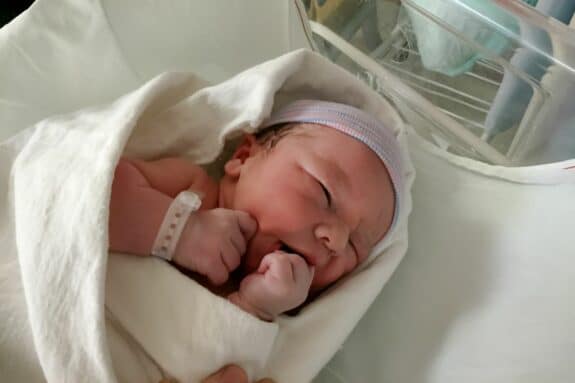Newborn screening is an important process that aims to ensure healthy babies and prevent newborn deaths or disabilities. During newborn screening in the United States, several inherited and genetic conditions are tested for, including phenylketonuria (PKU), cystic fibrosis, sickle cell disease, congenital hypothyroidism, and hearing loss problems. These tests assess the newborn’s metabolic and genetic systems to detect any abnormalities that could affect the baby’s health. Early detection and treatment of these conditions can prevent damage to vital organs and improve the baby’s long-term health outcomes.
Expanding newborn screening to include the identification of genes associated with an elevated risk of neurodevelopmental disorders (NDD), however, may do more harm than good, according to a recent study published in Paediatrics.
While some experts believe that early identification of NDDs in newborns can lead to effective treatment, the authors of the study express concerns about the potential exacerbation of existing health disparities through expanded genome sequencing.
Lead author Dr. Sarah Sobotka, Assistant Professor of Developmental and Behavioral Pediatrics at the University of Chicago, explains, “The effectiveness of early genomic screening relies on our ability to identify children with NDDs early and provide them with timely access to therapeutic support. However, we currently lack the necessary resources and equal access to care for children already diagnosed with NDDs.”
To address these concerns, Sobotka and co-author Dr. Lainie Ross, Chair of the Department of Health Humanities and Bioethics at the University of Rochester, advocate for strategic NDD screening in children exhibiting signs of developmental delays, rather than widespread testing.
The study points out that the scientific matching of genotype (genetic makeup) and phenotype (outwardly expressed indicators or behavior) has not been adequately demonstrated. This raises concerns about over-treatment for conditions that may never manifest in a child.
Moreover, the study highlights the potential harm caused by labeling children based on genetic variants, which can lead to stigma and self-fulfilling prophecies for those who may never develop NDDs.
Another issue is the inadequate availability of trained therapists to provide necessary services for children with NDDs. Increasing early identification for those at risk, even if they may not exhibit developmental delays, would further favor those with resources while hindering access to care for marginalized groups.
Furthermore, the study notes a lack of genetic population data representing diverse communities, as most genetic research participants have been from the white middle class. This could lead to quicker access to early interventions for some groups while leaving others behind.
Dr. Ross emphasizes the need to gather more diverse genetic information before considering broad newborn testing, stating, “If we wait until signs of delays appear, we can study other genetic variants within diverse populations. This will provide a better understanding of the correlation between genotypes and NDD phenotypes.”
While opposing broad genomic sequencing, Sobotka and Ross support early screening for NDDs. They recommend focusing resources on early identification by general pediatricians during routine well-child visits, using standardized screening assessment tools and referrals from early childhood education programs.
Sobotka emphasizes the importance of early identification and the implementation of interventions such as educational programs and supportive family leave policies, rather than expanding NBS programs.
In conclusion, the study raises valid concerns about the potential risks and disparities associated with expanded newborn screening for NDDs, highlighting the need for targeted screening and comprehensive support for early interventions.
Related Articles:







